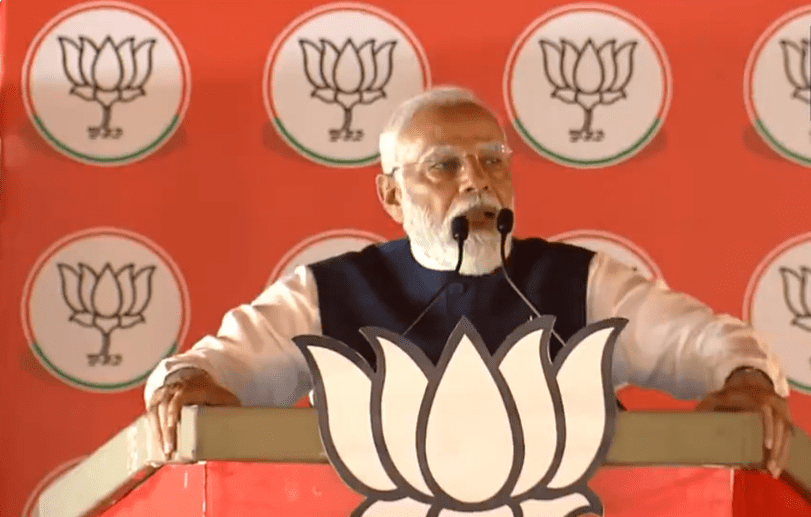In a recent political gathering, Prime Minister Narendra Modi made a significant announcement that has stirred both curiosity and debate within the political sphere. Modi, while addressing the audience, revealed that the Bharatiya Janata Party (BJP) has redefined its ‘Sankalp Patra’ as a ‘guarantee card’.
“The BJP released its ‘Sankalp Patra’ two days ago. This is the first time a party’s ‘Sankalp Patra’ is being referred to as a ‘guarantee card’,” declared Prime Minister Modi.
Traditionally, the ‘Sankalp Patra’ serves as a manifesto elucidating the party’s promises and commitments to the Indian populace. It is essentially a roadmap outlining the party’s vision and plans if entrusted with power.
By labeling the ‘Sankalp Patra’ as a ‘guarantee card’, Prime Minister Modi has ushered in a new era of political discourse, one that emphasizes accountability and responsibility. This rebranding implies a contractual obligation on the part of the BJP to fulfill the pledges outlined in their manifesto.
This move has sparked widespread interest and scrutiny, with many questioning the practical implications of this transformation. While some laud it as a commendable effort to instill trust and transparency in governance, others remain skeptical about the feasibility of converting political promises into tangible guarantees.
As the political landscape evolves, the Indian electorate will keenly observe whether the BJP’s ‘Sankalp Patra’ lives up to its newfound status as a ‘guarantee card’. This development has the potential to redefine the relationship between political parties and the public, paving the way for greater accountability and scrutiny of electoral promises.



